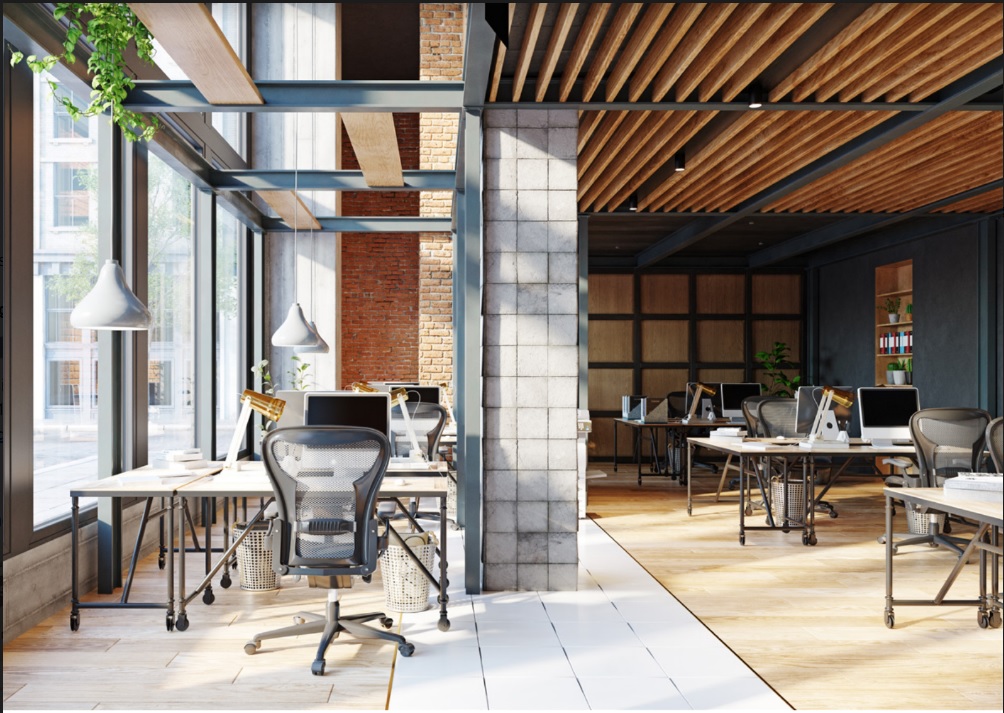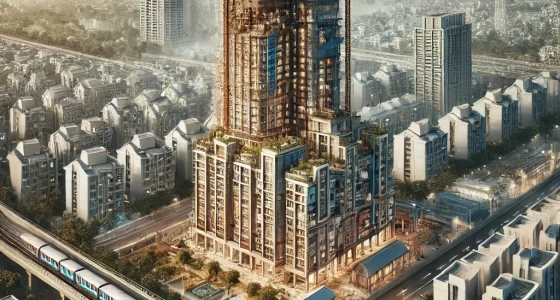2X growth in operational flex stock over the next five years, to hit 106 mn sq ft in the top 7 cities: JLL- Smartworks report
- With ~839,250 seats, operational flex stock reaches 53 mn sq ft across the top 7 cities
- Bengaluru leads with a ~39% share of overall flex stock, followed by Delhi NCR (~17%)
- Space taken up by enterprises (converted to per seat basis) in flex has risen by 3.2X during FY21 to FY23, to a record-high number; Bengaluru, Pune, and Delhi NCR are the biggest markets
- Pune witnesses maximum flex stock CAGR of 49% since 2018, followed by Hyderabad, Chennai, and Delhi NCR
- 10X growth in flex seats leased by startups between FY 21 – 23
Ascertaining the close integration of India’s flex sector into the commercial real estate sector, India’s Flex Space Market – The brightest star in the CRE galaxy, a JLL – Smartworks joint report predicts that India’s operational flex stock will reach 106 mn sq ft, doubling again over the next five years. The country’s operational flex stock has risen to 53 mn sq ft across the top seven cities, occupying around ~839,250 seats. This equates to an overall office stock penetration level of around 4.7%, making it among the fastest-growing flex markets globally.
Enterprises cutting across origin, scale, and industry segments are looking to integrate flex in their portfolios, from housing their flagship offices to high-end R&D teams and business functions. Notably, the space taken up by enterprises (converted to per seat basis) in flex has risen by 3.2X from FY21 to FY 23, to a record-high number. Further, the enterprise seat take-up recorded in FY 2023 is higher compared to the combined FY 2021 & FY 2022 numbers. Bengaluru, Pune, and Delhi NCR have been the three biggest markets during the past three financial years, combining for a ~ 60% share of all enterprise seats taken up during that period.
Pure-play managed space providers have been the drivers of the flex resurgence post-COVID, seeing their share grow by 3.4X over the same period. The managed space operators have seen their operational footprint grow by 10X to ~15 mn sq ft till March 2023 compared to 2018. However, hybrid players still hold the largest share, accounting for a substantial 44.2% of the operational flex stock.
Bengaluru leads the overall operational flex stock, accounting for a ~39% share on average since 2018, followed by Delhi NCR with an average share of ~17%. Over the same period, Hyderabad and Pune have displaced Mumbai in terms of the next highest flex stock across the top 7 cities. Pune has witnessed the maximum CAGR growth of 49% since 2018 followed by Hyderabad (40%), Chennai, and Delhi NCR. (30%)
Enterprise deal sizes getting bigger
Bengaluru, Pune, Delhi NCR and Mumbai lead large deal sizes > 500 seats with a combined 75-80% share from FY 21- 23. Enterprise deals with > 500 seats has the highest share amongst all deal size segments, pointing towards demand for bigger, managed solutions from large enterprises. While Delhi NCR and Chennai dominate the small deal size of < 100 seats with a combined share of 55-60% from FY 21-23.
Agile start-ups make a beeline for flex
Indian start-ups have leased more flex seats over FY 21 – FY 23 compared to any other sector except technology. Their share has risen to a high of 31% in FY 2023, the second highest for the last two financial years. The Indian start-up ecosystem is embracing flex as it offers them just the right amount of cost, location, and tenure flexibility while creating flagship, modern workplaces for their employees. Start-ups across diverse categories including manufacturing / industrial, BFSI, and consulting are now adopting flexible office formats to a greater extent.
What do flex space users think about flex: A JLL Smartworks Occupier survey
The survey reveals that an overwhelming 90% of respondents prefer Flex in some form or the other.A sizeable 63% of all respondents want flex as an adjunct to their overall portfolio – keeping conventional spaces but adding more flexibility to their portfolio. The survey found that 1/4th of all large enterprises do not mind moving to a fully flex portfolio, thus indicating how demand is evolving with a service-oriented space solution being highly preferred, Small enterprises, on the other hand, prefer moving to a fully flex portfolio given the need for agility and cost optimization.
“Office First” meets flexibility
Respondents who have an ‘office first approach’ indicate a willingness to have up to 25% of their existing portfolio in flex spaces. 27% of respondents who currently advocate a work-from-office-only approach, still want to work from conventional offices only, but 1/3rd of them are willing to move up to 25% of their portfolio into flex. Among those following a hybrid approach, around 39% are willing to move up to a quarter of their portfolio in flex spaces and they also show a higher degree of willingness to look at moving 100% of their portfolio into flex.
Note: ‘Office first’ is defined as the respondent set that follows a ‘hybrid’ or ‘work from office’ workplace strategy
Flex story in tier 2 cities
The JLL-Smartworks report finds that the flex story in tier 2 cities is gaining definite momentum. Business continuity has emerged as the biggest driver for respondents looking at tier 2 cities as part of their growth and geographic diversification plans. Lower operational costs, workforce mobility, and talent retention are top parameters to explore opportunities for flex spaces in tier 2 cities
It further highlights that sustainability has become a key criterion when choosing workspaces, particularly among the larger occupier segments. As sustainability becomes imperative for space selection, occupiers want to imbibe green building certifications as a part of their ESG goals. The share of space leased in green-certified buildings by flex operators rose to 51% in the 2021-Q1 2023 period compared to just 28% in the preceding period of 2019-2020.
The report suggests that flex operators can help support building investors and landlords in layering services that deliver a personal and memorable experience which aids in tenant management, better revenues and higher occupancy, and in turn better valuation.
Dr. Samantak Das, Chief Economist and Head of Research and REIS, India, JLL, said, “As employees demand more from their workplaces and occupiers look to revitalize their offices while adding a greater degree of dynamic space planning to their overall portfolio strategy, the flex sector has emerged as a strong partner. From an operational footprint of under 20 mn sq ft, the flex segment is 3X in size across the top seven cities, driven by rising demand for managed space solutions from enterprises cutting across geographies and industries. We expect the sector to continue its growth journey and is poised to double its footprint over the next five years, crossing the 100 mn sq ft mark across the top seven cities. Additionally, organizations are looking to tap into the opportunities offered by the tier 2 and tier 3 markets in terms of talent accessibility and mobility of their workforce. This does not mean that the demand for conventional office has been cannibalized.”
Neetish Sarda, Founder, Smartworks said, “The flex sector has been at the forefront of changing the dynamics of the CRE market. Flex has truly gone big as employee experience and technology intersect to create modern workspaces. It is no longer an afterthought or a short-term tactical decision. The continued rise of managed spaces, even post-COVID, has been truly remarkable, significantly propelling the overall growth of the flex segment. From FY21 to FY23, the extraordinary three-fold increase in the adoption of enterprise seats closely aligns with the widespread acceptance and adoption of the managed spaces and the overall flex model.”








